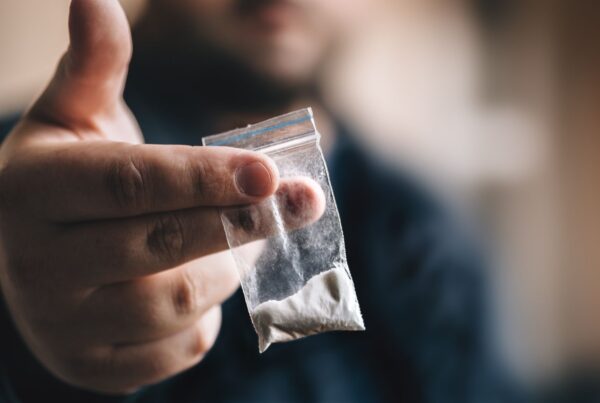Cocaine
Cocaine is a powerfully, addictive stimulant drug that is extracted from the leaves of the coca plant. Cocaine specifically refers to the drug in a powder form or crystal form. The powder is frequently mixed with other substances such as sugar, cornstarch, and talcum powder and/ or laced with other drugs (e.g. amphetamines). It can be ingested via the nasal cavity (sniffed), intravenously (injected), inhaled (as a smoke or vapor) and/ or rubbed into one’s gums. Though cocaine was originally developed as a painkiller, it is now classified by the United States Drug Enforcement Administration (DEA) as a Schedule II Substance, which are “drugs, substances, or chemicals [that] are defined as drugs with a high potential for abuse, with use potentially leading to severe psychological or physical dependence.” Due to the fact that cocaine is an illicit substance, the exact ingredients included in each batch are left solely to the discretion of the manufacturer. This means that the consumers have no way of truly knowing the precise potency of the substance they are ingesting, which can be incredibly dangerous.
Alcohol
Alcohol is a central nervous system depressant. Opposite from cocaine, it works by slowing down vital functions in one’s body. Alcohol is a legal drug for consumption by individuals over the age of twenty-one. After an individual drinks alcohol, it is absorbed from the small intestine and stomach into his or her bloodstream, and is then metabolized in the liver. The liver, however, is only able to metabolize a small amount of alcohol at a time, which leaves excess alcohol to circulate throughout one’s body via the bloodstream. The amount of alcohol consumed directly relates to its affects on one’s body.
Mixing Cocaine and Alcohol
Cocaine causes stimulant effects while alcohol has the opposite effects of stimulant drugs. When mixed together an individual exposes him or herself to developing many possible adverse effects, including causing a third drug to form in one’s body called cocaethylene. Healthline asserts that cocaethylene is “stronger than either cocaine or alcohol alone…and it increases toxicity to the heart, liver, and other major organs.” Additionally, mixing cocaine and alcohol can increase one’s risk for developing any combination of the following, as provided by Medical News Today:
- Liver damage
- Organ failure
- Heart damage
- Overdose
- Stroke
- Heart attack
- Bleeding in the brain
- Irregular heartbeat
- Increased risk of cancer
- Increased risk of blood borne illness through injecting cocaine (e.g. HIV, hepatitis C, etc.)
- Increased risk of suicide attempts
- Sudden death from cocaethylene toxicity
When an individual mixes cocaine and alcohol the effects can lead to severe short and long-term consequences, and in some cases be life-threatening.
For Information and Support
If you are concerned for yourself or a loved one in regards to substance abuse and/ or addiction we recommend reaching out for help as soon as possible. If left untreated, substance abuse can result in long lasting and potentially life-threatening consequences. Keep in mind: you are not alone! There is an entire network of professionals that are available to help and support you and your loved one throughout the recovery process. The earlier you seek support, the sooner your loved one can return to a happy, healthy, and fulfilling life.
Please do not hesitate to reach out with any questions regarding our specific program at Haven House Addiction Treatment and/ or general substance abuse and/ or addiction treatment related information. Our highly trained staff is readily available to discuss how we might best be able to help you and your loved one. We can be reached by phone at 424-258-6792. You are also welcome to contact anytime us via email at admissions@hhtxc.com.



